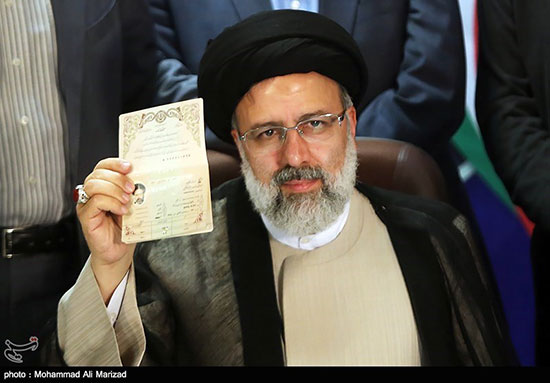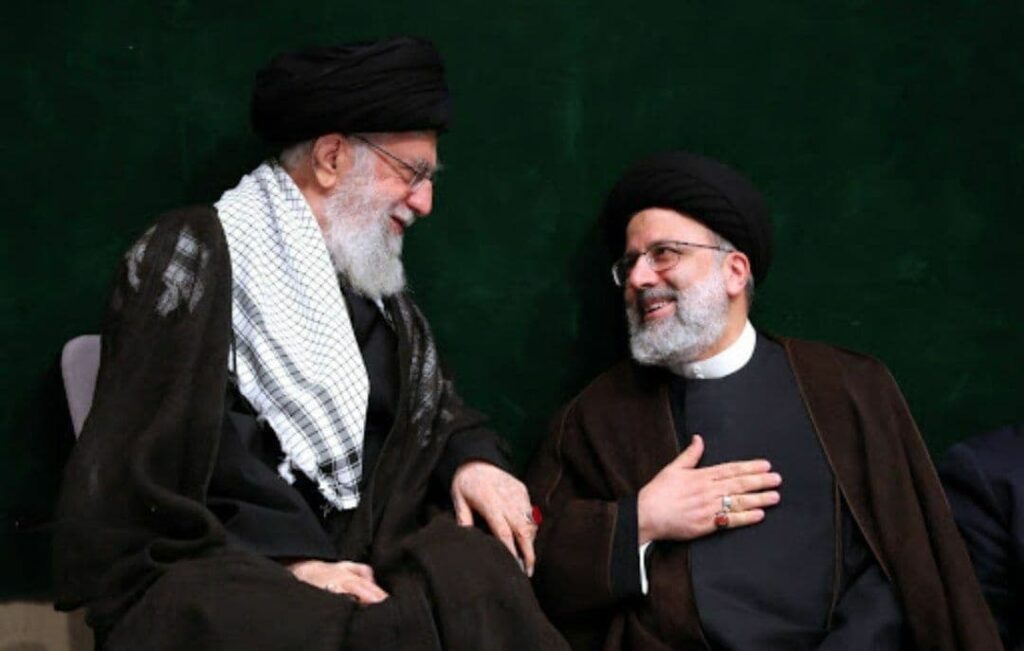
18th June 2021
With Iranian presidential elections scheduled for 18 June and the latest round of talks in Vienna aimed at reviving the Iran nuclear deal underway, the Islamic Republic is reaching a critical point. Jane Green assesses the implications…
The role of the president in a theocratic dictatorship, such as the Islamic Republic of Iran, may appear to be superfluous, with ultimate power being concentrated in the hands of Supreme Leader, Ayatollah Ali Khamenei. Within the Iranian system the president can still attempt to exercise some influence but this is distorted by the narrow parameters of the theocracy.
While the president may lay claim to having an elected mandate, this is illusory in any real sense as the choice of candidates open to the public is strictly controlled by the regime and any hint of opposition to the prevailing orthodoxy is swiftly weeded out. Thus, for the upcoming presidential elections, of the 40 candidates that made the original long-list, only 7 have been allowed to stand for the ballot. This shortlist represents a very narrow range of political views, reflecting varying shades of support for the regime, while genuine opposition has been excluded altogether.
The 40-year history of the Islamic Republic has seen the legitimacy of each presidential election questioned as the political differences between candidates has narrowed each time. Gerrymandering, vote rigging, and intimidation have also featured heavily in the election process to ensure that the regime’s preferred candidate is successful.
It is an open secret that the regime’s preferred candidate for this week’s election is Ebrahim Raisi, a conservative cleric and current chief justice. Raisi is notorious amongst the oppositionin Iran for having been a prominent member of the “death committee”, which oversaw the execution of thousands of Iranian political prisoners, mainly socialists and communists, who were hanged from cranes in their droves in the late-summer of 1988.
Unsurprisingly, there is a widespread call from the Iranian opposition to boycott the election, with initial estimates suggesting that up to 70% of the electorate may indeed stay away from the polls. The fear that this may be the case is reflected in the calls made in recent sermons by Khamenei, for believers not to heed the increasingly loud calls for a boycott of the election. He admitted that there had been some “mistakes” in the vetting of candidates and called for these to be redressed.
Iran goes into the elections at a time when the country is blighted by economic bankruptcy due to the implementation of macro policies formulated by the clerical regime to serve the interests of the country’s capitalists and powerful super-rich class. This is exacerbated by the economic sanctions imposed by the United States in contravention of international law, following the unilateral withdrawal of the US in 2018 from the Joint Comprehensive Plan of Action (JCPOA) or Iran nuclear deal.
As a result, tens of millions of Iranians live below the poverty line; unemployment levels are sky-high, especially among the youth; and inflation is rampant. In addition, Iran has been devastated by the COVID-19 pandemic, wholly exacerbated by the regime’s feeble response, which has led to
the deaths of more than 80,000 people and a further sharp deterioration in the economic situation.
As a consequence, opposition to the regime in the form of street protests openly denouncing corruption, economic mismanagement, and demanding economic equality and social justice, have been growing. The spirit of defiance, which is building amongst the population as a whole, is met with increasing ruthlessness by the security forces involving both violence and mass arrests. The human rights record of the Iranian regime continues to be an appalling litany of arbitrary arrest, torture, rape, trumped-up charges, and incarceration with little or no access to legal representation or medical care.
The regime is setting great store by the latest round of negotiations in Vienna, to revive the JCPOA, as a means to reversing the economic decline. While taking a belligerent stance towards the United States in public, the Iranian regime is all too aware that in order to engage in international markets then removal of economic and banking sanctions, and access to US dollars and international financial institutions, is vital.

Behind closed doors, the Supreme Leader and his clerical allies are only too aware of their extremely weak position, with regard to the state of Iran’s economy and the key need for big capital interests in Iran to be able to access global financial markets.
For its part the US is equally aware of Iran’s weakness, and this will no doubt form part of US calculations as the negotiations progress. It will certainly take precedence over any human rights concerns as the US looks to open up Iranian markets and exploit the potential for utilising Iran as a source of cheap labour.
Decades of neoliberal economic restructuring based on IMF prescriptions and massive corruption within the regime, have vastly increased the private wealth of the upper layers of the clergy in Iran while producing a weak and hollowed-out national economy fully reliant on the export of crude oil, itself restricted due to the sanctions regime.
The outcome of the election on 18 June will no-doubt see the installation of an even more vicious, anti-democratic, and fiercely entrenched Islamist administration in Iran. This will in turn necessitate the beginning of an era of reinvigorated campaigning for the rights of the Iranian people. This will be for trade union rights, women’s rights, the right to freedom of speech, the right to freedom of association, and much more. The international campaign of solidarity with the struggle of the Iranian people for peace, human and democratic rights, and social justice, must step up to demonstrate its effectiveness.
CODIR calls upon the labour and trade union movement to join its campaign for human and
democratic rights in Iran. The new administration in Iran should be left in no doubt that it
cannot ignore public opinion whether from inside Iran or around the world.












 Posted in
Posted in 











